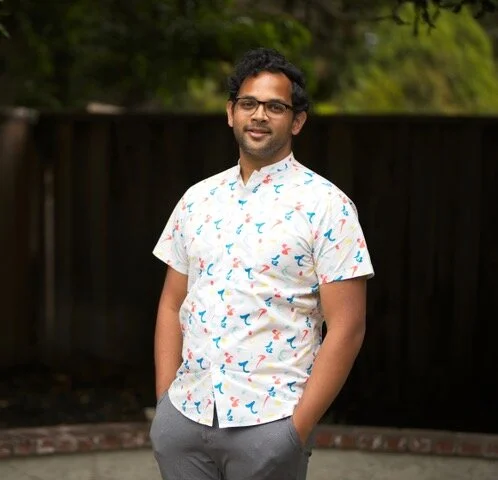This post is part of ARC’s Chronicles of Change and Hope series. This is a curated project for sharing stories, songs, prayers, poems, images, or insights that capture a moment of connection or new life. It is a place to share small acts of resistance or transformation you want others to know about. Rights remain with the contributors. To contribute to Chronicles, read more here.
Today’s contribution is a prose poem. The work comes to us from one of ARC’s two Co-Executive Directors, Callid Keefe-Perry. Asked why he wanted to share this piece at this time, Callid shared the following:
I wrote this piece years ago as a kind of reflective and poetic prayer manual. Given current world events and the constant siren of noise, I recently returned to it again, thinking about how important it is to find ways to turn toward life without trying to hide from the realities of pain, hurt, and violence. I feel that balance is an increasingly challenging one to walk. On one side there is the danger of becoming so immersed in news of the horrid that it pulls you into a desert of depression and critical cynicism. On the other, one risks floating off into a fluffy kind of naïveté where the world is seen through rose-colored glasses and real harms and social wounds are skipped over and ignored for want of confirmation that everything is going to be alright in the end. What I always aspire to do — and frequently fail at — is to stay aware enough of my surroundings that I stay engaged, but no so much that I am pressed into inaction by the weight of it all. This piece is small reminder to myself to help stay in that mindset of the space between.
How to Listen for What Comes Next
1.
You will hear it on the third day of waking to a dream where everything was
right, it was clear what your next step was, and you knew just what to do
with that long weekend you still have open. You know, the space
you want to use for something, but you’ve been pulling back from
since you couldn’t think of anything just right to do with the time
you have. And you want a perfect fit. Yes, the hackneyed hand
in glove, and your favorite jacket, but also the first hug
and conversation with your dear friend long-missed and still
loved, the joy of becoming a parent, or grandparent, or auntie,
the smell of cocoa when you are ten and snow has called you all day.
The smell of July and nothing but basketball until Monday. Greens
and warm bread. Being seen as you are. Attention given to small joys.
2.
When the memory of that fit lingers call it back to you daily.
Ask it what it needs. What would it like? Are there any special
purple socks it prefers? A particular bakery that is the spot?
Make that memory a friend. The dream wants you as a conspirator
and confidant. She wants to share with you the shapes of what can be,
contours of priority and passion that lead out to a place where things are
the way they should be. Even before your friendship is cemented,
tell others about this new relationship. How there’s a certain something
that captivates you even though you can’t put your finger on it.
Talk about what it is like to learn about what you’ve always wanted
and rarely known. Always known and rarely felt. Listen to others
and what they say to you when you tell them how good the news is.
Ask if they’ve been hearing it too. They’ll have stories of their own.
3.
Eat food that nourishes your body and spirit. Eat it with those you love.
Raise your voices in laughter, love, frustration, and — as needed — rage.
If you cannot get to any of the tables that make you feel whole and home,
or you need to turn away and walk toward new ideas of holiness and hearth,
do whatever you need to find a place where you feel like you are becoming
more of what you are supposed to be. Learn what the space feels like inside.
Move your body as needed, in dance, in love, out into the street, into hills
where tall trees call you down into the earth. The details are less important
than the reminder that your flesh and bone is worthy of love and attention.
Scream or and cry or stand silently. Spin under the stars, lose yourself in
a crowd, make something small, or bury yourself in soil until you touch
the roots. Remember that you can be part of what will come next.
4.
There will be moments when you will want a life you do not have.
Days that call not for ease or lushness, but ask you to do the hard thing.
You will wonder if someone like you should be living like that. On
the edge of change. Rough. Sometimes that is the life you will need
to be building. Stone on stone, walls rising slowly and made to last.
Good work. Calluses. Heft. Other days you will not want rest
because you know how much is left to be done. You will remember
the faces that have been lost and rage at those who seed loss.
And on some of those days you will need to sleep. To watch
your favorite film again, mouthing the lines along with each actor
just to feel like you know where you are. And I don’t know when
those days will come. Or what other walks you will take. Or stumbles.
So listen. Remember the things that call you and stay calling.
Know that you can be called, then called away, and then back.
That your respite is sometimes shorter than you would have liked.
Longer. Far longer.
Too short.
5.
...and work together.
Resist together.
Rest together.
Dream.
Listen.
Build.
Listen again.



